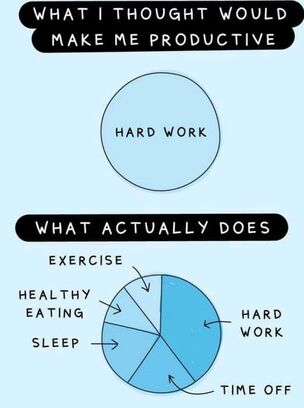
"Life is difficult.
This is a great truth. One of the greatest truths. It is a great truth because once we truly see this truth, we transcend it. Once we truly know that life is difficult - once we truly know and accept it - then life is no longer difficult. Because once it is accepted, the fact that life is difficult no longer matters." (From The Road Less Travelled).
The world over, life is difficult. What tends to vary is the source of the difficulty. It may be the economy. It may be health. It may be family issues. It could be the internal politics of your company. There are as many sources of difficulty as there are people.
In my coaching practice, my clients are dealing with the following sources of difficulty:
- declining markets;
- disruption to the normal flow of things because of the corona virus causing delays in manufacturing, imports and deliveries as well as disrupting access to overseas markets;
- headcount freezes because of real or anticipated economic slow down resulting in having to do more with less;
- having to shave margins to the bone just to compete (which I've heard called "the race to zero margin");
- toxic workplaces where people are constantly on edge, where bullying is rife, and where people always feel like they have to watch their backs;
- pressure from overseas holding companies because they have problems (even if your local operation is flying);
- rolling out new initiatives and piloting new business models under global scrutiny;
- having to manage teams that feel overwhelmed, undervalued, and fed up while trying to inspire excitement about some vision that currently feels like a pipe dream.
And that was just last week!
Almost inevitably, when life is difficult, we focus all our energy and attention on managing that difficulty. As a consequence, we start doing things that actually make things more difficult for both ourselves and those around us. Let's consider some examples:
- we spend more and more time in meetings that are not productive and are less available to our people;
- we work longer hours in order to meet tighter deadlines;
- we stop taking lunch breaks;
- we eat more junk and eat for comfort more often;
- we sacrifice exercise because we are too busy;
- we zone out on social media more often because we are too exhausted to actually engage with our spouse or children;
- we use booze to relax and pills to get to sleep;
- we rush from meeting to meeting, walking too fast and looking too intense or stern and talking too fast and listening too little;
- we carry with us a pervasive anxiety that just sits in the pit of our stomach creating this feeling of impending doom;
- we obsess on the bad news that is all around us which only adds to our sense of impending doom.
Sound familiar? Did I just make your day even more difficult?
These behaviours are how we respond to the difficulties that are part of life when we have not made peace with the idea that life is difficult - and what we are dealing with today just happens to be the present source of difficulty. And, as with all things, this too shall pass. And then things will be less difficult, and then things will get difficult again.
The point I am making is that the difficulty you are experiencing now is part of how life works. It may feel unusual or special in some way, but it isn't really. And the sacrifices that we make in terms of self-care and care for others does not help us through the current difficulty - it actually makes things worse. When we sacrifice self-care we ensure that it is our lower selves that we are pitched at our difficulties, when the situation really requires the highest version of ourselves. When we sacrifice self-care we communicate to others that this is what is expected and what is required - with the result that those around us also bring their lower selves. The characteristics of our lower selves include:
- impatience;
- anxiety;
- short-tempers;
- fear-based thinking (which is thinking of a far lower quality than the thinking that happens when we are calm) resulting in fear-based decisions.
When life is difficult it feels right that we should be pushing the hours, working harder, taking less time for ourselves and others - it feels like this is what we need to do to get over the hump. But trust me. This hump will be replaced by another hump, and then another one. So what do we have to do?
1. Accept that your current difficulty is your normal for now. It is what it is. It's not special. It's not unusual. It just is. Ask yourself this question: if you knew that this situation was what you have to look forward to for the rest of your life would you carry on the way you are? Or might you think "The hell with it! I might as well take care of myself!"
2. Get some perspective. Get off the playing field and up onto the balcony and take a look at what is going on on the field. Do this with someone you trust who is not on the field too - a coach, a mentor, a friend who you know will help you gain some perspective. Gaining perspective is about:
- creating some distance between you and the current difficulty;
- getting clear on priorities;
- working out a game plan to address the priorities;
- deciding what not to focus on for now.
- exercise time;
- eat away from your desk;
- eat good calories. Your brain is an energy gobbling machine. Don't feed it garbage. Garbage in, garbage out;
- set limits on your working hours and boundaries between work and home. For example, eat breakfast and dinner at the table with your family and without devices; work longer at the office if you must but then don't work at home; or do an hour of work before the family is awake and then have breakfast with the family;
- sleep: know yourself. If you are an 8 hour per day person, then that is what you need. Sleep is essential to your productivity and effectiveness;
- block out time for your people. Life is difficult. They need access to you;
- take time out. Find a relaxation practice that suits you: a walk in nature; a mindfulness meditation; listening to flowing water; something that will slow down your racing mind;
- What meetings should you not go to? What meetings just shouldn't take place at all? Would everyone's life be easier if there was a Friday ban on meetings? Should meetings be limited to 40 minutes? Should you have your meetings standing up?
- What responsibilities should you delegate or just put down for now?
- What tasks or responsibilities need to be executed in a leaner, simpler, less engineered way?
- During which times of the day will you not be available to take calls?
- Is there anything else you need to NOT do because it adds little value and is making life more difficult? Is there anything your team should NOT do for the same reasons?
- Practice asking more questions. When life is difficult the quality of your thinking is paramount. You don't have to have an instant answer. You have to have a quality answer. Ask questions until you have looked at the issue from every angle. Then make your decision.
- If at all possible, sleep on your decisions. This will slow things down a bit, and will also allow your subconscious to apply itself to the issue and make sense of things in a way your conscious mind does not. Identify what decisions must NOT be made until you are sure they will result in quality actions.
7. Make time for your faith practices, if you are a person of faith. Knowing you are not alone is hugely positive for your sense that you can get through whatever difficulties you are dealing with.
When life is difficult, self-care is key. The tactics I've described are all about taking care of yourself - and many of them will also take care of your people. When your people are struggling with the same difficulties that you are, or some of their own, these tactics will help to build their resilience. Self-care is absolutely vital to building resilience - in yourself and in others - and resilience is what gets us through the tough times.
When life is difficult, our default is to dive into action. Most of these tactics are counter intuitive, so you won't trust that implementing them all at once will do anything except create more problems. So start with one thing first. My own recommendation is that you start with some form of relaxation practice or exercise regime - but it's horses for courses really. Just start with one form of self-care. Then as you see that it actually helps, you could add another and another. And remember to care for your team as you care for yourself. They share your difficulties even when yours are personal.


 RSS Feed
RSS Feed


